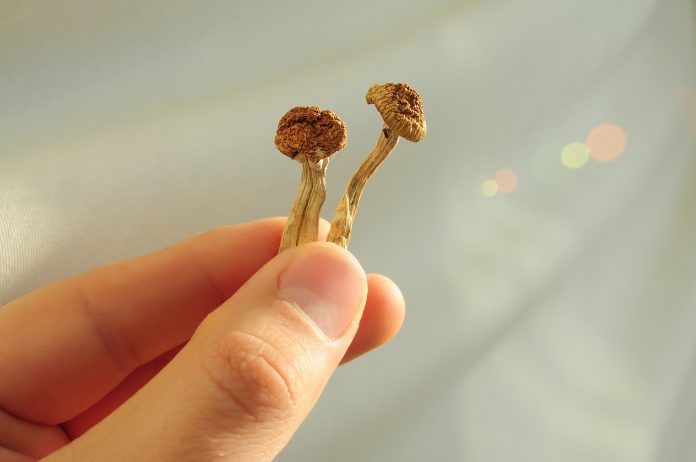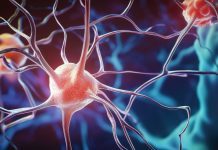In a groundbreaking first, psilocybin is entering gastroenterology. Dr. Erin Mauney leads a pioneering study exploring how psychedelic therapy could transform treatment for millions suffering from treatment-resistant Irritable Bowel Syndrome, offering new hope for gut-brain disorders
Dr. Erin E. Mauney, an assistant professor of paediatrics at Tufts University with a research appointment at Massachusetts General Hospital, is leading the first-ever clinical trial exploring the effects of psilocybin on treatment-resistant irritable bowel syndrome (IBS). Her pioneering work, detailed in a comprehensive Genomic Press Interview published today, addresses a critical unmet need for patients who find no relief from conventional therapies.
Breaking ground in gut-brain medicine: Psilocybin and IBS
Dr. Mauney’s innovative research delves into how psilocybin modulates interoception, the intricate way individuals perceive their own bodily and gastrointestinal sensations. The study protocol integrates two doses of psilocybin with pre- and post-dosing therapy sessions, coupled with fMRI neuroimaging to meticulously track brain changes.
“I became very interested in the applicability of this emerging field of psychedelic-assisted medicine to patients who seem to be at war with their bodies,” Dr. Mauney explained in the interview. Her approach is rooted in the understanding that many patients experiencing severe, unexplained physical symptoms often have a history of significant trauma, particularly in early life.
This insight drives her investigation into how early-life trauma becomes “somatically encoded” within the body, leading her to explore whether psychedelic therapy can facilitate emotional release and functional improvement.
From personal curiosity to professional innovation
Dr. Mauney’s journey into psychedelic research was sparked during the pandemic, fueled by reading Michael Pollan’s “How to Change Your Mind” as she solidified her specialization in paediatric gastroenterology. Her background is a compelling blend of bacteriology research, including work on immune tolerance-inducing bacteria, and clinical expertise in integrative gastroenterology.
A pivotal moment came when she didn’t secure her first-choice fellowship. Instead, she matched at Massachusetts General Hospital, a serendipitous turn that granted her access to crucial mentors like Dr. Franklin King at the Centre for the Neuroscience of Psychedelics and Dr. Brad Kuo at the Centre for Neurointestinal Health. These connections proved instrumental in establishing her pioneering psychedelic research program.
Healing the mind-body divide
Beyond treating IBS, Dr. Mauney’s study aims to bridge what she calls “the schism between mind and body that so many physicians practice within.” This artificial separation has long hampered effective treatment for functional gastrointestinal disorders, where psychological and physical symptoms are deeply intertwined.
Her research methodology combines quantitative measures, such as patient-reported abdominal pain scores, with rich qualitative patient reflections and objective neuroimaging data. This multifaceted approach seeks to capture both the subjective experience of healing and measurable biological changes, potentially setting a new standard for studying other functional disorders where traditional treatments fall short.
Implications for paediatric medicine and beyond
While Dr. Mauney’s current research focuses on adult patients, her paediatric background profoundly shapes her perspective.
Witnessing daily inequality and injustice, particularly concerning childhood obesity, fuels her broader vision for medicine. She emphasises that preventing paediatric obesity requires “a full-scale realignment of our society’s priorities,” encompassing food subsidies, urban planning, educational strategies, and the impact of technology on children.
This systemic thinking prompts vital questions: How might early, trauma-informed interventions prevent chronic functional disorders? And what role could psychedelic therapy eventually play in addressing treatment-resistant conditions across the lifespan?
Dr. Mauney’s deeply personal philosophy, centred on “restoring humanity to the practice of medicine,” permeates her research design, which treats patients as whole individuals rather than mere collections of symptoms. Her approach signals a potential paradigm shift in how we conceptualise and treat functional disorders, moving beyond symptom suppression to address underlying causes, including psychological trauma.
Looking towards scalable solutions
Ultimately, Dr. Mauney’s research is driven by a desire not just to prove efficacy but to develop scalable therapeutic options. She envisions optimising psychedelic therapy protocols to make them widely accessible in clinical settings, offering a beacon of hope to the millions of IBS patients worldwide who have exhausted conventional treatment avenues.
As psychedelic medicine continues to gain mainstream acceptance, Dr. Mauney’s work positions gastroenterology at the forefront of this emerging therapeutic revolution.











